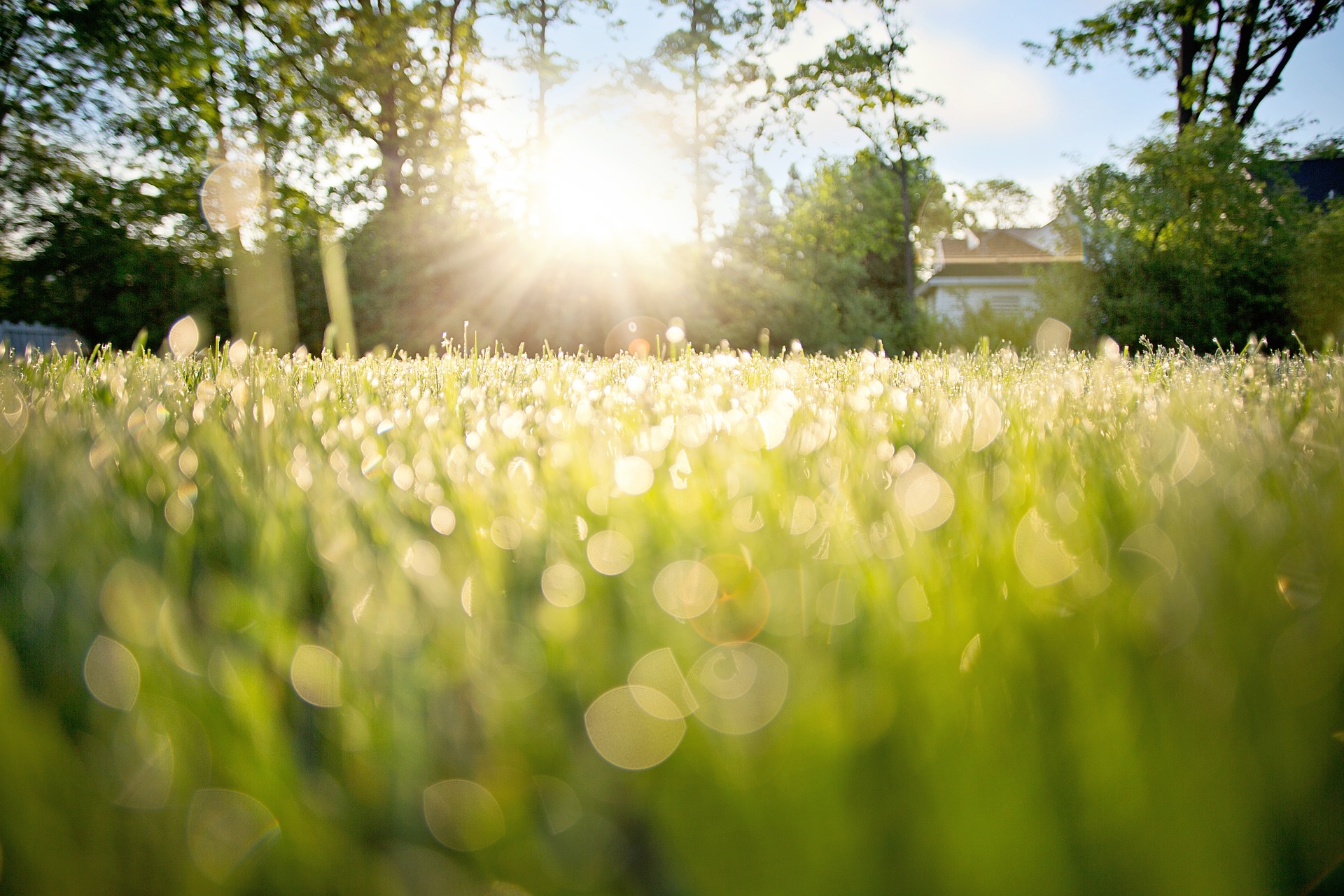Many have sung the beautiful hymn, “Dear Lord and Father of Mankind” for many years, not knowing of the longer poem from which it came.
Here is an overview of the poem (titled “The Brewing of Soma”) taken from Wikipedia:
The storyline is of Vedic priests brewing and drinking Soma in an attempt to experience divinity. It describes the whole population getting drunk on Soma. It compares this to some Christians’ use of “music, incense, vigils drear, and trance, to bring the skies more near, or lift men up to heaven!” But all in vain – it is mere intoxication.
Wikipedia
Take a moment to read the original poem (asterisks* denote words that are defined at the bottom of this post):
The Brewing of Soma
‘These libations mixed with milk have been prepared for
Indra: offer Soma to the drinker of Soma.’
—Vashista, translated by Max Muller.The fagots* blazed, the cauldron’s smoke
– John Greenleaf Whittier
Up through the green wood curled;
‘Bring honey from the hollow oak,
Bring milky sap,’ the brewers spoke,
In the childhood of the world.
And brewed they well or brewed they ill,
The priests thrust in their rods,
First tasted, and then drank their fill,
And shouted, with one voice and will,
‘Behold the drink of gods!’
They drank, and lo! in heart and brain
A new, glad life began;
The gray of hair grew young again,
The sick man laughed away his pain,
The cripple leaped and ran.
‘Drink, mortals, what the gods have sent,
Forget your long annoy.’
So sang the priests. From tent to tent
The Soma’s sacred madness went,
A storm of drunken joy.
Then knew each rapt* inebriate
A winged and glorious birth,
Soared upward, with strange joy elate,
Beat, with dazed head, Varuna’s* gate,
And, sobered, sank to earth.
The land with Soma’s praises rang;
On Gihon’s banks of shade
Its hymns the dusky maidens sang;
In joy of life or mortal pang
All men to Soma prayed.
The morning twilight of the race
Sends down these matin psalms;
And still with wondering eyes we trace
The simple prayers to Soma’s grace,
That Vedic* verse embalms.
As in that child-world’s early year,
Each after age has striven
By music, incense, vigils drear,
And trance, to bring the skies more near,
Or lift men up to heaven!
Some fever of the blood and brain,
Some self-exalting spell,
The scourger’s keen delight of pain,
The Dervish* dance, the Orphic* strain,
The wild-haired Bacchant’s* yell,–
The desert’s hair-grown hermit sunk
The saner brute below;
The naked Santon*, hashish*-drunk,
The cloister madness of the monk,
The fakir’s* torture-show!
And yet the past comes round again,
And new doth old fulfill;
In sensual transports wild as vain
We brew in many a Christian fane*
The heathen Soma still!
Dear Lord and Father of mankind,
Forgive our foolish ways!
Reclothe us in our rightful mind,
In purer lives Thy service find,
In deeper reverence, praise.
In simple trust like theirs who heard
Beside the Syrian sea
The gracious calling of the Lord,
Let us, like them, without a word,
Rise up and follow Thee.
O Sabbath rest by Galilee!
O calm of hills above,
Where Jesus knelt to share with Thee
The silence of eternity
Interpreted by love!
With that deep hush subduing all
Our words and works that drown
The tender whisper of Thy call,
As noiseless let Thy blessing fall
As fell Thy manna down.
Drop Thy still dews of quietness,
Till all our strivings cease;
Take from our souls the strain and stress,
And let our ordered lives confess
The beauty of Thy peace.
Breathe through the heats of our desire
Thy coolness and Thy balm;
Let sense be dumb, let flesh retire;
Speak through the earthquake, wind, and fire,
O still, small voice of calm!
The first few verses of the poem describe the creation, drinking, and the worship of the heathen drink, Soma. Men created it in an attempt to elevate their minds and raise themselves heavenward, but only managed to experience the illusion of enlightenment caused by a chemical high. The poem mentions that the praises of the drink could be heard everywhere. Those who drank could not truly get nearer to God by their drinking; therefore, they began to worship the drink itself rather than almighty God. This reminds me of Romans chapter 1, in which Paul is writing about the sinfulness of man (much like this poem) and says this:
Therefore God also gave them up to uncleanness, in the lusts of their hearts, to dishonor their bodies among themselves, who exchanged the truth of God for the lie, and worshiped and served the creature rather than the Creator, who is blessed forever. Amen.
Romans 1:24-25 (NJKV)
The next few verses of the poem tell how, ever since that time so long ago, humans have tried many methods to reach toward heaven it attempt to bring heaven closer to Earth. Whittier mentions “music, incense, vigils drear” and many more ways in following verses that men have used to do so.
He then essentially says the old saying from Solomon, “Nothing is new under the sun.” The old ways always come back around in new skins. “We brew in many a Christian fane the heathen Soma still!” This declaration should cut us deeply. It states that in all our music, incense, vigils, dances, drugs, sects, and shows, we are doing the same thing that the heathen Soma drinkers did when they drank and worshipped their precious source of wild fever dreams.
We put what we think is best in place of the God who made us.
Therefore, we should all ask our Father to forgive or foolish ways.
Finally, we reach the verses used as the lyrics of the hymn. After all the explanation of the behavior of mankind in the past and the realization that we still mistreat God in similar ways today, we ask for forgiveness and help to live a Godly life.
The final lines of the poem reminisce the moment in which God spoke to Elijah in 1 Kings 19:
Then He said, “Go out, and stand on the mountain before the Lord.” And behold, the Lord passed by, and a great and strong wind tore into the mountains and broke the rocks in pieces before the Lord, but the Lord was not in the wind; and after the wind an earthquake, but the Lord was not in the earthquake; and after the earthquake a fire, but the Lord was not in the fire; and after the fire a still small voice.
1 Kings 19:11-12 (NKJV)
This passage is often used to illustrate how God does not always speak through or cause the great and powerful calamities, but often comes to us in the following tender moments in a still, small voice of comfort.
Now, listen to “Dear Lord and Father of Mankind” after reading more about the full poem.
May we remember the mistakes made by or ancestors and strive not to continue in such ways. May we ask for our heavenly Father’s forgiveness when we do put our fleshly desires in place of His commands. May we strive to serve God faithfully and listen to Him when He speaks to us in the stillness after life’s storms.
V
Thank you for reading! If you would like, comment below describing a time you listened to the still, small voice of calm.
* A Few Definitions
- Soma – was a sacred ritual drink in Vedic religion, going back to Proto-Indo-Iranian times (ca. 2000 BC), possibly with hallucinogenic properties
- fagots – bundles of sticks used as firewood
- rapt – “having been carried away bodily or transported to heaven”
- Varuna – a Vedic deity
- Vedic – of the Vedas: are a large body of religious texts originating in ancient India
- Dervish – a member of a Muslim (specifically Sufi) religious order who has taken vows of poverty and austerity. Dervishes first appeared in the 12th century; they were noted for their wild or ecstatic rituals and were known as dancing, whirling, or howling dervishes according to the practice of their order.
- Orphic – to do with Orphism: the name given to a set of religious beliefs and practices originating in the ancient Greek and Hellenistic world, as well as from the Thracians, associated with literature ascribed to the mythical poet Orpheus, who descended into the Greek underworld and returned.
- Bacchant – a priest, priestess, or follower of Bacchus (the Roman god of agriculture, wine and fertility)
- Santon – from word for “little saint.” Connection to Whittier’s mention of nakedness unknown.
- Hashish – or hash, is a drug made from the resin of the cannabis plant
- Fakir – is a Sufi Muslim ascetic who has taken vows of poverty and worship
- fane – temple or church
Below is a PowerPoint for the song, to which I added the extra two verses from the end of the poem. Please use this only if you or your congregation already owns a copy of the Paperless Hymnal for “Dear Lord and Father of Mankind” to avoid copyright issues.
[googleapps domain=”docs” dir=”presentation/d/e/2PACX-1vSwjYuDnvdd2T4FOZT1AWQAY1i4fVP72n1Gnd0wRkGP1GyHQKPViH89TrCxwqhTSTYN_bhGCAIdZtRt/embed” query=”start=false&loop=false&delayms=10000″ width=”960″ height=”569″ /]
Image by Jill Wellington from Pixabay

